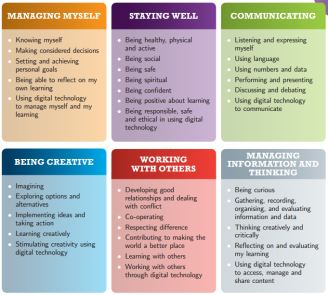Having come to the end of one of our master’s module, Religion in a Globalising World, I can now take the opportunity to reflect on some of the implications that religion, in the globalising world that we now live in, has on religious education. I aim to highlight these implications specifically in terms of the Irish educational context. Over the past five months there have been a series of developments and incidents in Irish education in terms of religious education that have brought it to the forefront of public attention and debate. One incident, that I looked at previously here, involved a school allowing a student to opt out of religious education altogether. In my own opinion this was the wrong decision. In a world where so much goes on in the name of religion, our students, be they children or young adolescents, need religious education now more than ever so that they can understand what is going on and why. The decision, which was backed by the minister for education, sent the wrong message to both the public and other parents right across the country.
I felt very disappointed regarding this decision at the time. I personally feel that the majority of parents and the general public all over the country have, and are being given, the wrong impression as to what religious education in 21st century Ireland actually is. Parents, I tend to find, relate back to their own days of being taught religion in school. Many of whom don’t look favourably upon it, and this of course will impact their own decision as to whether they want their children studying religious education. However, parents need to be aware that religious education is in no way what it was in the 20th century where it was purely religious instruction that was taught without direction or a set curriculum. This is not what religious education is about and I feel that we have come a long way since the days of religious instruction in Irish secondary schools. We are now living in a multicultural society and world where respect, understanding and love for one another is of paramount importance.
Religious education should never be about religious instruction. Religious education is the teaching about religions, beliefs and other worldviews. It aims to teach respect, understanding, and trust to our students in hope of showing a way of living harmoniously and respectfully with one another in our communities and the world. It is inclusive and respectful of all religions, beliefs and other worldviews. In this day and age, with all that is going on in the world regarding religion, I feel that now more than ever it should be one of the first subjects on any curriculum so that many of the wrong, intolerant and ignorant attitudes and viewpoints may be addressed, enlightened and corrected.
If the curriculum needs to be adapted and changed to suit the sign of the times, then so it should be. At this moment in time, parents do not have the option, nor would they dream of taking their child out of other core subjects such as maths and English as they are seen as being of vital importance for preparing their child for future education and their integration into society. So I ask why is the same value and opinion not placed on religious education? Regardless of your own beliefs, one has to be able to acknowledge the value of learning about the culture, beliefs, traditions, and values of others so that we may understand and respect one another as individuals and as human beings.
The fact that such a decision had the backing of the minister of education left me asking myself if the minister understood what consequences her decision and comments were going to have on religious education in schools all around the country. The lack of respect being shown to such an important subject by the head of education, is something I find baffling. I personally feel that religious education is already treated with a huge lack of respect across the board, and now this is simply another nail in the coffin. How do you think people are going to view the subject now that the head of education does not even value it’s worth? The minister is out of touch in her understanding of religious education. This was evident in her referral to it as religious instruction at one stage, a completely wrong interpretation as to what the subject actually is.
My opinion regarding those who feel that religious education is unimportant and unnecessary, are precisely the individuals who probably need religious education the most. It must be reiterated that religious education is the teaching about religions and other worldviews, and in this day and age when so much is going on in the world, I could not think of a more essential subject to help our students understand what is going on and why. We need to rid of the horrible stereotyping and ignorance shown towards others in our communities, instead we should be teaching our students to understand and respect one another whatever their views. As a religion teacher myself, I believe that everyone should be seen in the exact same light. I feel that students who wish to drop out of religious education are simply only doing themselves a disservice in their education. It should not matter if you are religious or not, every student should still have to learn to understand and respect other individuals in our communities, their beliefs, traditions and culture. An unwillingness to do so will only heighten one’s own ignorance and intolerance of others around them, leading to their failure to see the bigger picture.
In terms of the globalising world that we are now faced with, there are now more than ever, many people who live their lives without making any reference to a supernatural being or creator. This I feel must also be taken into consideration in religious education. These individuals fall under a whole list of different labels such as atheists, humanists or non-believers. They live their lives under the assumption that there is no such thing as a supernatural deity who is involved in our worldly affairs. They see no special meaning or reasoning as to why we are here, and go about their daily lives as such, without religious worship or religious ceremony. These ways of thinking and daily living practices have been essential elements in the lives of key figures throughout history and without question must be recognised for their contribution to the world we live in. Students should without question be given information about these atheistic and other worldviews. As such, I believe that these worldviews should unquestionably be included in the education of our students. Religious education should be inclusive of these other worldviews and I feel that they should be given sufficient attention in the curriculum. Religious education should always aim to teach about religions and other worldviews with the aim of giving students an understanding and respect for other faiths, beliefs, views, cultures, actions, and traditions. Knowledge of such elements should be conveyed in a pluralistic and respectful manner. I think we as educators should also be careful in our description of other worldviews as non-religious. I feel that this terminology could have a negative effect as the use of the “non” denotes a sense of inferiority to other religious faiths and beliefs.
The majority of people in modern society live as believers of a supernatural being, but there is also a significant number of adherents who live as atheists or humanists too. Therefore, if other worldviews and perspectives are excluded in education, it may lead religious education to put the religious on a pedestal as the norm. In a society where an increasing number of children grow up in families that have other worldviews, I would hope to see a greater inclusion of such worldviews in religious education. Students of religious education in general should be ready to recognise, discuss and engage with all religious and other worldviews subjectivity.
These elements have been discussed in terms of the Irish educational context and are but some of the implications that I envisage for religious education in our continuously globalising world. Some of these implications will be universal in other countries across the world. What is of paramount importance going forward in religious education is that we treat everyone with the respect, love and understanding that we ourselves would wish to receive, and that we do not fall prey to the blind ignorance and intolerance that has cast its shadow across the world on far too many occasions.




